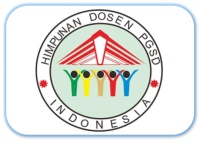Kontribusi Kejenuhan Belajar terhadap Motivasi Belajar Siswa Full Day School di SMP Negeri 4 Dumai
Abstract
This research is motivated by the phenomenon of full day school students who experience learning saturation so that it has an impact on the level of student learning motivation that is low. This study aims to examine the contribution of learning saturation to the motivation to learn full day school students. The total sample of 90 students of SMP Negeri 4 Dumai was chosen using stratified random sampling. The instrument used is a likert scale model. Data were analyzed with the SPSS program. The results of this study reveal that there is a significant relationship between saturation of learning and learning motivation with a correlation coefficient of -0.622 which is at a significance level of 0,000 and the contribution of learning saturation to full day school students' motivation is 38.7%. This can be interpreted that the higher the level of learning saturation, the lower student learning motivation. With these findings it is expected that counselor can provide guidance and counseling services such as information services, individual counseling services, group guidance services, and group counseling services, to help reduce learning saturation and increase student motivation.
Keywords
References
Aritonang, K. T. (2008). Minat dan Motivasi dalam Meningkatkan Hasil Belajar Siswa. Jurnal Psikologi Dan Kesehatan, 7, 11–21.
Baharuddin. (2009). Pendidikan dan Psikologi Perkembangan. Yogyakarta: Ar-Ruzz Media.
Desyafmi, H., Firman, & Ifdil. (2014). Peningkatan Motivasi Siswa dalam Menyelesaikan Tugas Melalui Layanan Informasi. Konselor, 3(1).
Hamidy, A. (2017). Meningkatkan Motivasi Belajar Siswa dalam Pembelajaran Matematika Kelas VII Melalui Model Pembelajaran Kooperatif Tipe TPS dengan Pendekatan Kontekstual di SMP Muhammadiyah 2 Depok. Universitas Negeri Yogyakarta.
Kemendikbud. (2017). Peraturan Menteri Pendidikan dan Kebudayaan Republik Indonesia No. 23 tahun 2017.
Khodijah, N. (2014). Psikologi Belajar. Jakarta: Rajawali Pres.
Maslach, C., Jackson, S. E., & Leiter, M. P. (1986). The Maslach Burnout Inventory Manual, 192–218.
Muna, N. R. (2013). Efektifitas teknik Self Regulation Learning dalam Mereduksi Tingkat Kejenuhan Belajar Siswa di SMA Insan Cendekia Sekarkemuning Cirebon. Holistik, 14(02), 57–78.
Nashar. (2004). Peranan Motivasi dan Kemampuan Awal. Jakarta: Delia Press.
Rochana, S. (2016). Upaya Meningkatkan Motivasi Belajar Matematika Siswa Kelas VII SMP Melalui Penerapan Model Pembelajaran Guided Inquiry. In Prosiding Seminar Nasional Reforming Pedagogy (pp. 163–168).
Sardiman, A. . (2012). Interaksi dan Motivasi Belajar Mengajar. Jakarta: Rajawali Pres.
Slameto. (1995). Belajar dan Faktor-faktor yang Mempengaruhinya. Jakarta: Rineka Cipta.
Syah, M. (2011). Psikologi Pendidikan. Bandung: Remaja Rosdakarya.
Winkel, W. . (2009). Psikologi Pengajaran. Jakarta: Gramedia.
DOI: http://dx.doi.org/10.24036/e-jipsd.v7i4.5720


